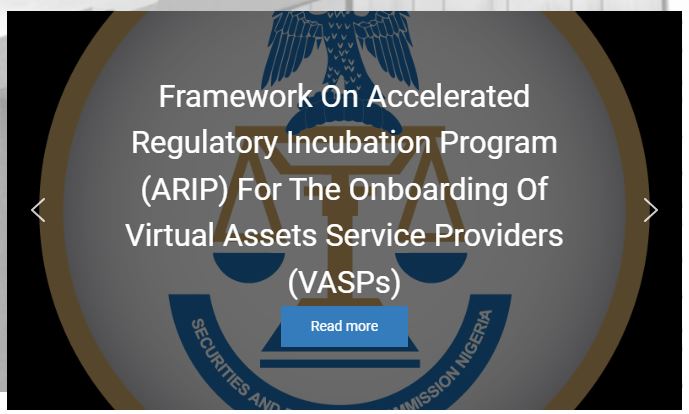Physical Address
60 Ekwema Cres, Layout 460281, Imo
Physical Address
60 Ekwema Cres, Layout 460281, Imo

For the first time ever, two local exchanges, Quidax and Busha, received provisional licenses from the Securities and Exchange Commission (SEC), the industry regulator in Nigeria.
The announcement puts an end to months of ambiguity surrounding the local government’s position on digital assets. It happened one week after the SEC made suggestions about awarding its first batch of operating licenses.
The Accelerated Regulatory Incubation Program (ARIP), which was introduced in July of this year, includes licensing as a component.
The program brings on board cryptocurrency exchanges that were already up and running when the SEC published regulations for companies that provide virtual asset services in May 2022.

As per the regulatory body, approvals-in-principle serve as a prelude to complete registration and are intended to establish safeguards and procedures for transparency.
Regardless of popularity, new initiatives aim to impose some kind of order on a market that is expanding quickly and is mainly unregulated. Cryptocurrency is used by millions of Nigerians as a safety net against unstable economies and depreciating Naira.
However, a lack of regulatory supervision has raised questions about possible illegal activity, fraud, and market instability.
Emomotimi Agama, the director general of the SEC, recognized the significance of a regulatory system that strikes a balance between innovation and market integrity. It would put Nigeria in line with other nations establishing regulations for suppliers of virtual assets, such as the June 2023 Markets in Crypto-Assets (MiCA) rule from the European Union.
Also Read: FG Set To Launch New Internet Protocol version To Strengthen Cybersecurity
The regulator places a high priority on consumer protection and transparency in an effort to draw in more investors.
The journey is probably lengthy, though. Mistrust has been fostered by past acts, such as the shutdown of cryptocurrency websites and the freezing of wallets connected to previous rallies. There are also worries that licensing could be arbitrated or unduly bureaucratic.
Interact with us via our social media platforms:
Facebook: Silicon Africa.
Instagram: Siliconafricatech.
Twitter: @siliconafrite.